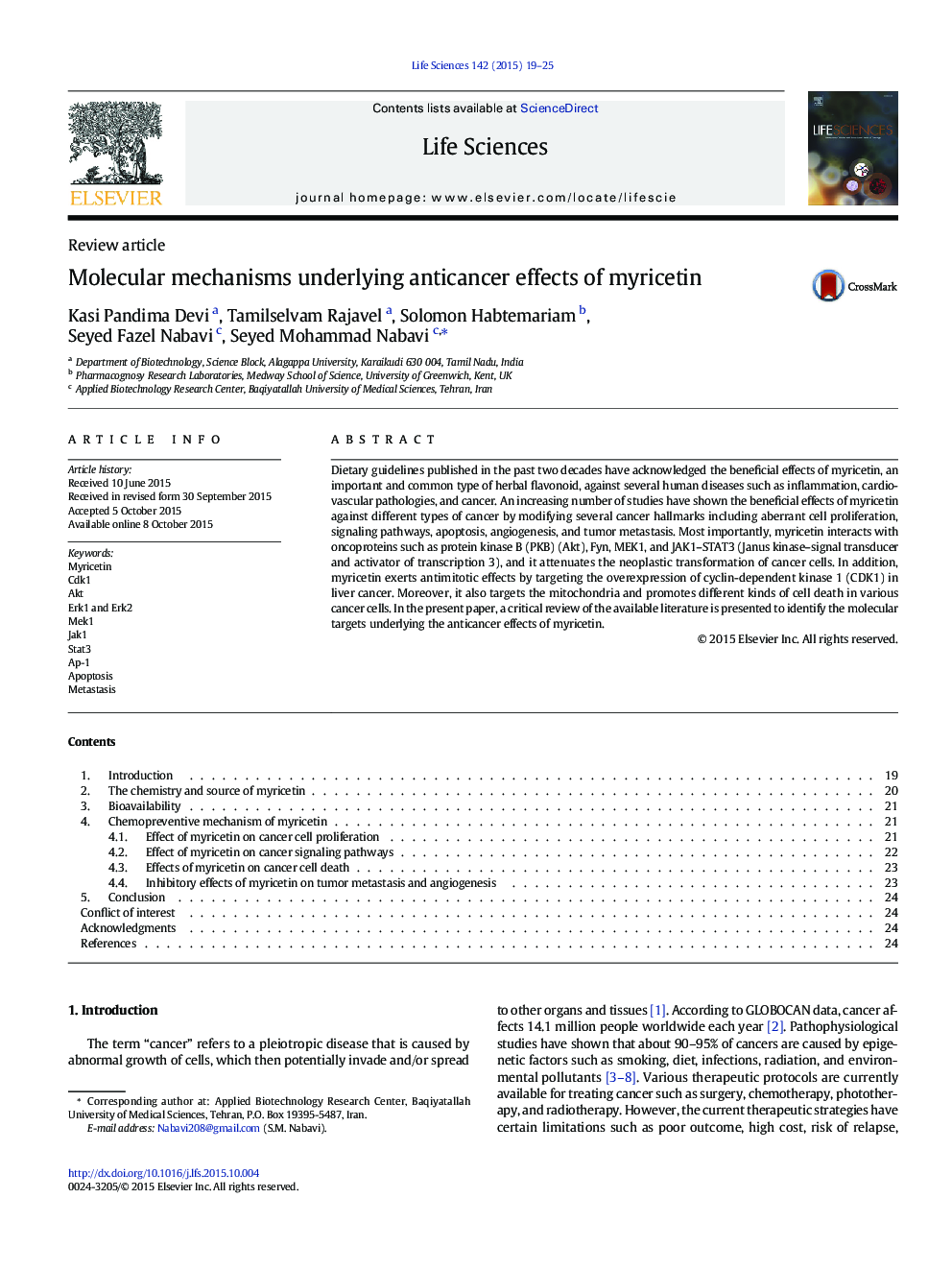| Article ID | Journal | Published Year | Pages | File Type |
|---|---|---|---|---|
| 2550772 | Life Sciences | 2015 | 7 Pages |
Dietary guidelines published in the past two decades have acknowledged the beneficial effects of myricetin, an important and common type of herbal flavonoid, against several human diseases such as inflammation, cardiovascular pathologies, and cancer. An increasing number of studies have shown the beneficial effects of myricetin against different types of cancer by modifying several cancer hallmarks including aberrant cell proliferation, signaling pathways, apoptosis, angiogenesis, and tumor metastasis. Most importantly, myricetin interacts with oncoproteins such as protein kinase B (PKB) (Akt), Fyn, MEK1, and JAK1–STAT3 (Janus kinase–signal transducer and activator of transcription 3), and it attenuates the neoplastic transformation of cancer cells. In addition, myricetin exerts antimitotic effects by targeting the overexpression of cyclin-dependent kinase 1 (CDK1) in liver cancer. Moreover, it also targets the mitochondria and promotes different kinds of cell death in various cancer cells. In the present paper, a critical review of the available literature is presented to identify the molecular targets underlying the anticancer effects of myricetin.
Graphical abstractFigure optionsDownload full-size imageDownload high-quality image (99 K)Download as PowerPoint slide
